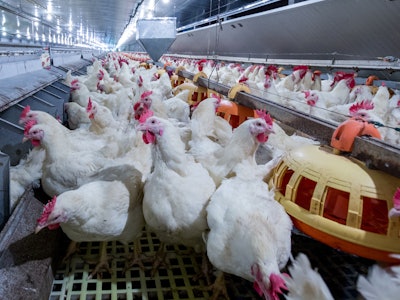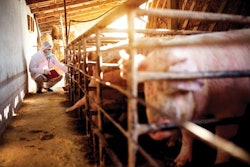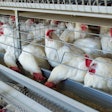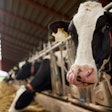
An engineered probiotic could replace antibiotics to prevent mortality associated with necrotic enteritis in broilers.
The probiotic takes a novel approach to combating necrotic enteritis by using genetically engineered lactobacillus strains that produce neutralizing antibodies against toxins from Clostridium perfringens, the pathogen responsible for the disease. Unlike traditional antibiotics that kill bacteria and potentially create resistance, this engineered probiotic neutralizes the disease-causing toxins while allowing the commensal bacteria to survive.
"We targeted necrotic enteritis as a challenge that was really highly dependent on antibiotics," explained BiomEdit CEO Aaron Schacht.
Necrotic enteritis typically develops as a complication of other diseases, like coccidiosis, that impact intestinal function or cause immunosuppression. Intestinal damage allows C. perfringens, a normal inhabitant of the intestinal tract, to attach, proliferate and produce toxins.
Mortality associated with necrotic enteritis in broilers results in an estimated $6 billion in losses annually throughout the world, Schacht said.
How to engineer a probiotic
The development process involved taking toxoids from C. perfringens, inoculating llamas to generate single-chain antibodies and then engineering those nanobody genes into selected lactobacillus strains. The result is two complementary bacterial strains that work better together than individually, each expressing antibodies against specific toxins.
The probiotic is administered through a day-of-hatch spray application, with birds naturally ingesting the bacteria through pecking behavior. A booster dose delivered through drinking water around day 14 maintains colony levels through day 35 of a typical 43-day growth cycle, covering the critical period when necrotic enteritis typically occurs.
The engineered probiotic recently entered the final phase of the U.S. Deparment of Agriculture’s (USDA's) conditional licensure process.
The company has also closed on its Series B funding round, securing approximately $18.4 million in financing led by Anterra Capital despite challenging market conditions. This funding will support the path to commercialization as BiomEdit prepares for market entry by November 2026.

















